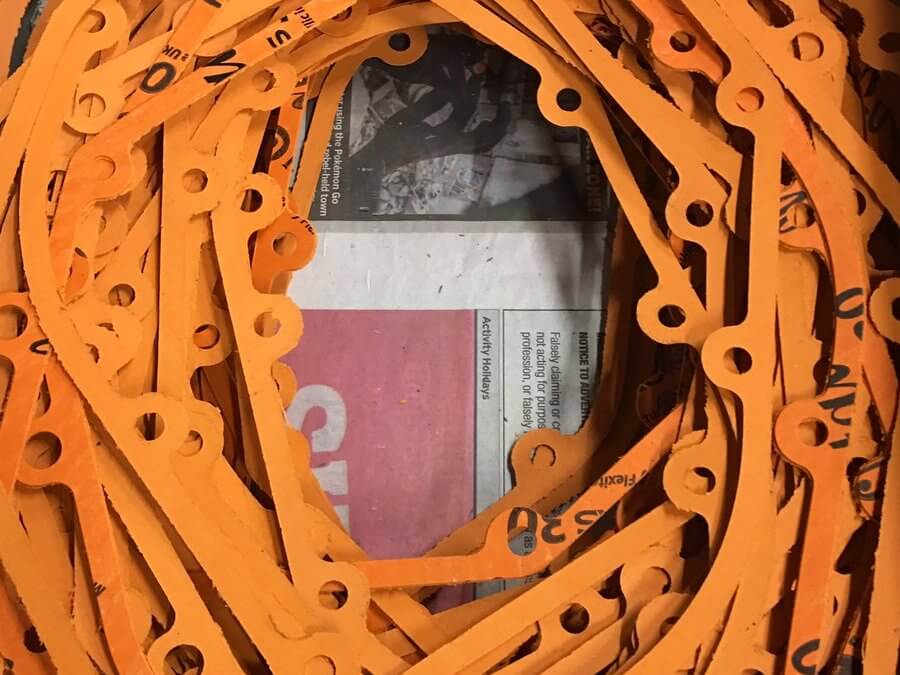Whether you are working on an industrial project or a commercial one, gasket material selection is a tricky task. Engineers have a lot of responsibility on their shoulders to ensure they are selecting the right gasket material that will meet all of the project’s requirements. It needs to be compatible with the area and environment in which it is being used in, should be able to at least withstand the operating temperature and pressure and should be flexible yet durable enough to achieve a high performing seal.
Related: Viton® Rubber Gaskets | The Benefits
Dangerous Sealants
Up until around the 1980s, an asbestos-based material was commonly used to make commercial and industrial gaskets. Asbestos offered some appealing qualities such as resistance to high temperatures, durability, flexibility and relatively cheap to manufacture with. However, as we are fully aware of now, this material was in fact a dangerous one to work with. When the material was being cut, sawed, sanded, and manipulated, asbestos fibres would be released into the air, and as a result, create an extremely dangerous environment to work in.
A New Generation of Gaskets
Inevitably, a need for asbestos-free gaskets arose, but it was important that the alternatives would still be able to offer the same important properties. The new gaskets used nowadays are made from a wide range of materials such as:
- Elastomeric materials – such as nitrile rubber gaskets
- Fibrous materials – such as carbon fibre
- Metallic materials – such as steel and aluminium gaskets
- Other gasket materials – graphic or PTFE
These are just some examples of the types of gasket materials that are commonly used to create gaskets, however, here at Stephens Gaskets, you will see a wide range of materials to choose from.
Gasket Material Selection
When it comes to gasket material selection, it is important to focus on the application at hand. This is where you will be able to determine the factors required from your gasket. Some important things to consider are:
- What temperature range will the gasket need to withstand?
- Will it be exposed to chemicals?
- What is the atmospheric environment like?
- How much pressure will it be exposed to daily?
Whilst one type of gasket material will perform outstandingly in an application, its performance could be abysmal in a different application. This is because gasket materials all have different properties which make them suitable for different uses and environments. For instance, rubber gaskets are fantastic for applications involving liquids as they will not corrode and are entirely water-resistant. However, foam gaskets would be completely inappropriate to use in the same application.
Gasket Materials
If you would like help with your gasket material selection, then why not get in touch with us today? For more information, visit our website or call 0121 544 580 to speak to a member of our helpful, friendly team.
If you have found this blog helpful, then you may wish to read our previous blog on Blue Metal Detectable Nitrile Rubber, What Is A washer Used For? and Benefits Of Brass Shims.

